Yra daug grėsmingų požymių, rodančių, kad reikia kreiptis į gastroenterologą, ir šiame įraše sužinosite, į kokius simptomus reikia atkreipti dėmesį. Gastroenterologas yra medicinos specialistas ir gydytojas, praėjęs griežtus ir išsamius mokymus, kad išmoktų valdyti, gydyti ir išgydyti su virškinimo traktu susijusias medicinines aplinkybes. Šios sritys apima žarnyną, skrandį, kepenis, stemplę ir tiesiąją žarną.
Turint tokį titulą, reikalingas daugiau nei 5 metų „vidaus ligų“ ir „Gastroenterologijos“ mokymas (baigus medicinos mokyklą); GI gydytojai teikia išskirtinę priežiūrą ir gydymą, o virškinimo trakto komplikacijų diagnozavimo ir gydymo srityje jiems dažniausiai sekasi geriau nei gydytojams.
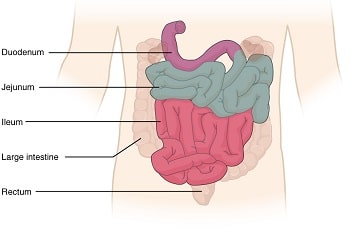
Turinys
Gastroenterologai specializuojasi „endoskopijos“, ty mažo ir siauro, bet lankstaus „vamzdžio“ su įmontuota kamera, kuri bus naudojama GI trakto naršymui procedūrų, operacijų ar diagnostinių tyrimų metu, naudojimo praktikai, siekiant išsiaiškinti, ar nėra tokių. yra ligų ar ataugų.
Kalbant apie su virškinimo traktu susijusias medicinines problemas, pasikonsultavę su gastroenterologu, gausite veiksmingiausią įmanomą gydymą nes jus gydys medicinos specialistas, turintis unikalią ir išsamią mokymo patirtį, kuri leis jums gauti aukštos kokybės ir „išsamų“ gydymą dėl bet kokių su GI susijusių medicininių komplikacijų, su kuriomis galite susidurti. P>
Atlikus tyrimus statistiškai įrodyta, kad gastroenterologai kolonoskopijas ir visapusišką virškinimo trakto problemų gydymą atlieka didesniu sėkmės rodikliu, palyginti su gydymu (-ais), kurį (-iuos) teikia kitų tipų gydytojai. Jums tai reiškia, kad gausite gydymą, kuris tiksliai nustatys vėžį ar polipus ir sumažins medicininių komplikacijų dėl gydymo tikimybę (GI gydyti pacientai taip pat gali tikėtis praleisti mažiau laiko ligoninė).
Šiame rašte apžvelgsime „15 populiariausių įspėjamųjų ženklų, kad jums reikia kreiptis į gastroenterologą“, kurie padės nustatyti, ar turite medicininės komplikacijos simptomų, dėl kurių reikia GI dėmesio ir gydymo. gydytojas.
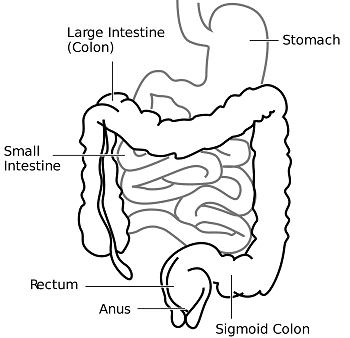
Kai pirmą kartą pradedate atpažinti naujai atsiradusius „skausmus“ ar bet kokius požymius/simptomus, kylančius iš virškinamojo trakto, pvz., rėmenį, pilvo skausmą, viduriavimą ar vidurių užkietėjimą, galite suabejoti, ar nereikėtų lankytis pas įprastą gydytoją, ar ne. gydytojas internistas arba gastroenterologas (virškinimo ligų specialistas). Kam pasirinksite diagnozuoti savo būklę (-es) jų atsiradimo pradžioje, gali skirtis dėl daugelio veiksnių.
Kai kuriais atvejais gali būti neaišku, ar teisingai pasirinkti kreiptis į gydytoją arba gastroenterologą, bet toliau padėsime suprasti simptomus ir išsiaiškinti, ar nėra virškinimo trakto problemų, kurias turėtų diagnozuoti ir gydyti GI gydytojas.
Jei tik dabar pirmą kartą pajutote simptomus ar skausmus virškinimo srityje, pirmiausia galite kreiptis į savo pirminės sveikatos priežiūros gydytoją, pvz., pirminės sveikatos priežiūros gydytoją ar internistą, patarimo.
Tikimės, kad tai bus gydytojas, su kuriuo ilgainiui užmezgėte santykius, nes jis (ji) turės visišką prieigą prie jūsų ligos ir gydymo istorijos, kurią bus galima peržiūrėti, kad būtų lengviau nustatyti, kas sukelia jūsų patiriamus simptomus. P>
Kai susitiksite su gydytoju ir pateiksite jam savo simptomus, bus atliktas fizinis egzaminas, kad būtų nuspręsta, ar reikia atlikti tyrimus, ar ne. Kai gydytojas atliks fizinį apžiūrą ir gerai supras, kas sukelia staigius virškinimo trakto skausmus, jis gali nuspręsti, kad gydymą turi suteikti specialistas, galintis suteikti emocinę sveikimo priežiūrą. Šiuo atveju „specialistas“ būtų gastroenterologas.
Dr. Tarugu, patyręs ir apdovanojimus pelnęs gastroenterologas iš Pietų Floridos rekomenduoja asmenims, kurie nuolat patiria sporadinius arba pasikartojančius paūmėjimus dėl anksčiau diagnozuotų ligų (tokių kaip opinis kolitas, Krono liga ar IBS), nedelsiant kreiptis į gastroenterologą, kad išvengtų tolesnio augimo ar komplikacijų. stiprus> branda.
Gastroenterologo gydymo metu jis/ji informuos jūsų gydytoją apie jūsų būklės (-ių) būklę ir padarytą pažangą. Šie atnaujinimai padės jūsų pirminės sveikatos priežiūros gydytojui gerai suprasti jūsų būseną, o tai padės gydytojui suteikti jums tinkamą priežiūrą, kaip pagalbą po pasveikimo. Kai kurios kitos virškinimo trakto ligos, kurias gydo GI gydytojai, yra ligos, kurios yra kasos arba kepenų srityje.
Jei jūsų pirminės sveikatos priežiūros gydytojas įtaria, kad šiose srityse kyla problemų, galima manyti, kad būsite nukreiptas pas vietinį gastroenterologą, kuris atliks išsamią diagnozę ir galės sudaryti gydymo planą.
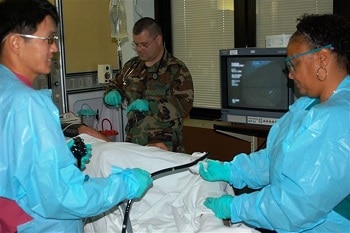
Kiekvienas iš jų yra unikalūs potencialiai rimtų būklių požymiai, kurių nereikėtų atmesti kaip „nesvarbius“, nes kiekvienas iš aukščiau išvardytų simptomų gali sukelti daug blogesnių komplikacijų signalus, jei nebus diagnozuotas ir gydomas „anksti“.
Toliau apžvelgsime, ką gali reikšti kiekvienas iš šių simptomų ir kodėl svarbu kuo greičiau kreiptis į GI gydytojo nurodymus ir gydymą.
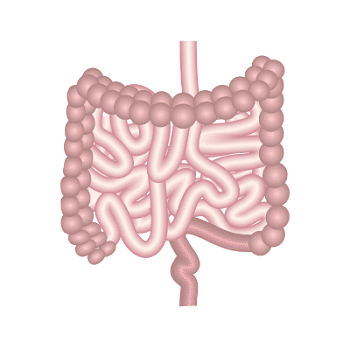
Apskaičiuota, kad iš viso 60 milijonų žmonių JAV patiria rėmenį ir kenčia vidutiniškai bent kartą per mėnesį, o maždaug 15 milijonų žmonių kenčia nuo šios būklės „kasdien“. Rūgščių virškinimo sutrikimų (rėmuo) simptomai dažniausiai būdingi nėščioms moterims ir pagyvenusiems žmonėms.
Yra būklė, vadinama „gastroezofaginiu refliuksu“, kuri yra kūno būklė, dėl kurios skrandžio rūgštis teka atgal ir grįžta į stemplę. Dėl šios priežasties kai kurie asmenys, deja, patirs simptomus, atsirandančius dėl to, kai vyksta šis procesas (tai gali būti kasdien, kas savaitę arba kas mėnesį).
Vienas iš pirmųjų kreipimosi į gastroenterologą požymių dėl rėmens yra karšto diskomforto jausmas, kylantis iš srities už krūtinkaulio. Šis jausmas turi tendenciją pereiti į gerklę ir kaklą, todėl bet koks diskomfortas šioje srityje turėtų būti įspėjamasis ženklas kad jums reikia kreiptis į gastroenterologą dėl diagnozės / gydymo.
Kitas įspėjamasis rūgšties refliukso požymis yra „rūgštus“ arba „kartus“ skonis gerklėje, nes tai yra skrandžio rūgšties skonis. Kadangi rėmuo gali tęstis iki kelių valandų (ir pablogėti valgant), toks nuolatinis susijaudinimas šioje srityje turėtų paskatinti nedelsiant kreiptis į GI gydytoją, kad atliktų diagnostinį tyrimą.
Jei tokius simptomus jaučiate 2 ar daugiau kartų per savaitę arba netenkate svorio, prarandate kraują ar prilimpa maistas, gali pasireikšti rėmuo, kuris yra labai rimtas. Jei atsiranda tokių simptomų, galite turėti būklę, vadinamą „Gastroezofaginio refliukso liga (arba „GERL injekcijai“).
Prieš pradėdami suprasti tikslias GERL arba gastroezofaginio refliukso ligos priežastis, pirmiausia turite suprasti, kokios yra rėmens priežastys. Daugelis žmonių pajus rėmens susijaudinimą, jei stemplės gleivinė ilgą laiką liečiasi su skrandžio skysčiais. .
Šie skrandžio skysčiai susideda iš kelių skirtingų medžiagų, įskaitant su virškinimu susijusius fermentus ir rūgštį. Kadangi skrandžio rūgštis liečiasi su stemplės gleivine, stemplė gali būti sužalota, o tai sukelia diskomfortą, deginimą ir skausmą.
Nors raumeninis vožtuvas link stemplės apačios (žinomas kaip „apatinis stemplės sfinkteris“ arba „LES“) išlaiko rūgštį skrandyje ir toliau nuo stemplės (kai veikia tinkamai), taip nėra, jei asmuo turi „Gastroezofaginio refliukso liga“ arba „GERL“, nes „LES“ turi tendenciją reguliariai atsipalaiduoti, todėl skrandžio rūgštis grįžta atgal į stemplę.
Tokį simptomą kaip galima greičiau turėtų gydyti GI gydytojas, kad būtų išvengta tolesnių komplikacijų.
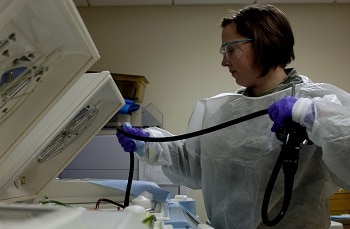
Apsilankius pas GI gydytoją, remiantis diagnostikos rezultatais, bus sudarytas gydymo/atkūrimo planas.
Jei nuo rėmens imatės savarankiškai gydytis daugiau nei du kartus per savaitę, vien tai yra požymis, kad reikia gydytis pas gastroenterologą. Būklės, kurių negydo patyręs GI, gali sukelti rimtesnių komplikacijų.
Ar turite problemų su maisto rijimu? Ar patiriate sunkumų nusiurbdami skysčius? Ar jaučiate atsitiktinį ar nuolatinį gerklės patinimą? Jei taip, tai gali būti nežymios ar rimtos būklės įspėjamasis ženklas, dėl kurio turėtumėte kreiptis į gastroenterologą diagnozei nustatyti. „Bet koks skausmas ar susijaudinimas, kurį sukelia geriamasis vanduo, gali būti rimtos virškinimo trakto problemos įspėjamasis ženklas“, – teigė patyręs, sertifikuotas ir apdovanojimus pelnęs gastroenterologas daktaras Vikramas Tarugu.
Kiti įspėjamieji ženklai, į kuriuos reikia atkreipti dėmesį gastroenterologas, yra tai, ar jūsų rijimo sunkumą lydi žagsulys, gerklės užkimimas, dažnas kosulys ar sotumo jausmas suvalgius labai mažą maisto porciją. Jei atsiranda bet kuris iš šių potencialiai pavojingų įspėjamųjų ženklų, priežastis gali būti stemplės vėžys. Todėl, jei jaučiate kurį nors iš šių įspėjamųjų ženklų, nedvejokite kreiptis patarimo pasikonsultuokite su savo pirminiu gydytoju arba gastroenterologu, jei jau turite ryšį su juo. Ar užuodžiate neįprastą kvapą nuo besileidžiančių dujų? Tai gali būti įspėjamasis ženklas apie infekcinius parazitus
Keista, bet vidutinis žmogus kasdien išskiria beveik 2 litrus dujų, nebent virškinamajame trakte atsiranda sutrikimų. Vienas įspėjamasis ženklas, į kurį reikia atkreipti ypatingą dėmesį, yra tai, jei jaučiate skausmą ar diskomfortą pilvo srityje, kai išsiskiria dujų arba tuštinasi.
Be to, jei tuštinimasis ir dujų išsiskyrimas pradėjo skleisti neįprastai baisų kvapą, tai gali būti ženklas, kad turite giardiją, kuri yra parazitas, dirginantis ir užkrečiantis žarnyną. Kadangi giardija gali pablogėti, jei ji negydoma, tokio įspėjamojo ženklo nereikėtų pamiršti.
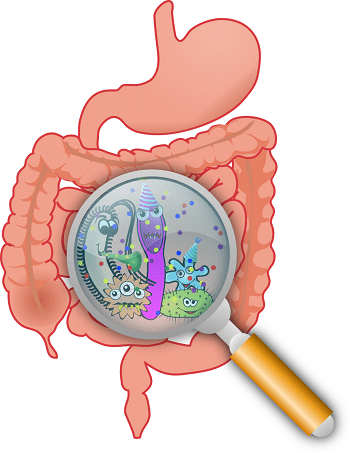
Visi esame patyrę pilvo pūtimą tam tikru savo gyvenimo momentu, bet jei jis užsitęs, gali būti, kad tai yra pagrindinė priežastis. Jei pastebėjote, kad jums sunku apsimauti šortus, kai vos prieš kelias dienas jas dėvėjote be problemų, tai gali būti, kad dėl to kaltas „nėjote į sporto salę“.
Pilvo pūtimas paprasčiausiai atsiranda, kai suvartojame per daug maisto / oro, o mūsų kūnas tinkamai jo neatsikrato. Tačiau jei pilvo pūtimas staiga prasideda be jokios aiškios priežasties (kurią laiką nevalgėte) ir atsiranda kartu su skausmu ar krauju išmatose, tai gali būti įspėjamasis ženklas, kad laikas kreiptis į gastroenterologą. P>
Toks požymis gali reikšti, kad prasidėjo celiakija, GERL (Gastroezofaginio refliukso liga), IBS (dirgliosios žarnos sindromas) vidurių užkietėjimas arba tulžies akmenligė.
Bet kuriuo atveju, kai atpažįstate kraują išmatose arba jaučiate nenormalius aštrius skausmus pilvo srityje, kai išsiskiria dujos ar tuštinasi, jums būtinai turi diagnozuoti ir gydyti GI gydytojas.
Vienas įspėjamasis ženklas, kurį turėtų diagnozuoti GI gydytojas, yra staigus, netikėtas ir nepaaiškinamas svorio kritimas. Nors staigus svorio kritimas gali būti siejamas su įvairiomis kitomis su sveikata susijusiomis problemomis, dažniausiai geriausia vieta ieškoti problemos priežasties yra virškinimo sistema.
Dr. Tarugu, sertifikuotas gastroenterologas Pietų Floridoje, sėkmingai atlikęs daugiau nei 2 100 procedūrų, teigė, kad „pirmosios problemos, kurias norite išskirti kaip staigaus svorio netekimo priežastis, yra skrandžio, kasos ar storosios žarnos vėžys“.
Taigi, jei staiga krenta svoris, kreipkitės į gastroenterologą, kad būtumėte tikri, kad tai nėra vėžys ar Chrono ar celiakija (dėl to jūsų organizmas gali mažiau pasisavinti gyvybiškai svarbias maistines medžiagas).

Tuštinimosi metu tikriausiai būtų šiek tiek neramu pastebėti kai kuriuos raudonus pėdsakus ant tualetinio popieriaus, nes visi žinome, kad kraujavimas iš tokios vietos nėra normalus. Kraujavimas iš tiesiosios žarnos srities gali būti potencialiai pavojingos būklės požymis, todėl jį reikia diagnozuoti ir nedelsiant gydyti.
Nors gali būti, kad kraujavimą sukelia hemorojus, jei taip nėra, būtinai būtina kreiptis į gastroenterologą, ypač jei kraujavimas kartojasi ir jei asmenys yra vyresni nei 40 metų.
Nevirškinimas (taip pat medicinoje vadinamas „dispepsija“) yra terminas, apibūdinantis būklę, kuriai būdingi keli skirtingi simptomai, atsirandantys valgant. Kai kurie iš šių simptomų gali apimti „prisotinimo“ jausmą, kai baigiate valgyti, ir „skausmą“ arba „deginimo pojūtį“ viršutinėje pilvo srityje.
Nevirškinimas yra gana dažna vidutinio ir vyresnio amžiaus žmonių būklė, kuri pasireiškia kas mėnesį, kas savaitę ar net kasdien.
Jei pajutote kurį nors iš šių simptomų, norint išvengti komplikacijų, būtina kreiptis į GI gydytojo patarimą ir gydymą:
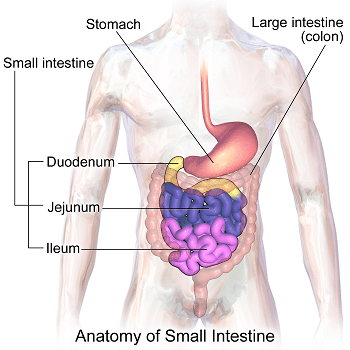
When visiting your GI doctor a treatment/recovery plan will be formulated based upon the diagnostic results.
Possible treatment suggestions may include:
Keep in mind that indigestion and heartburn are two different conditions with each having their own unique symptoms.
However, if you’re experiencing the symptoms of both then it’s possible that you’re suffering from both of the two. Regardless, whether the agitation is minor or severe it’s important that you take such a warning signal seriously and seek treatment from a GI doctor that will help to diagnose and remedy the condition(s).
Nausea is quite an unpleasant experience and can use intense feeling of dizziness, minor to severe discomfort and paint in the abdominal area. On the other hand, often times accompanies by nausea, vomiting is the occurrence of a contraction from the stomach that during times of nausea can help one feel a bit better as the content of stomach is during vomiting is the process in which it’s propelled up thru the esophagus.
Intense and consistent vomiting could possibly be a warning sign of a Gastroenteritis which can be treated by a gastroenterologist. Gastroenteritis is known to be a viral infection that causes inflammation within the digestive tract and can be treated thru the use of medication(s) which will be recommended by the gastroenterologist that you choose to visit.
Are you experiencing a dullish pain in the stomach, weight loss, the undesired to intake food due to pain or nausea/vomiting? If so, this could be a sign of a minor yet serious matter. Such warning signs could possibly mean that you’re suffering from a Peptic Ulcer which can be diagnosed by a gastroenterologist thru the use of an upper GI series or an endoscopy.
If you’re experiencing upper abdominal pains (one of the biggest signs of a stomach ulcer ) be sure that you seek the diagnosis/treatment from a GI doctor so you can have it treated while preventing the possibly of further complications arising from the condition.
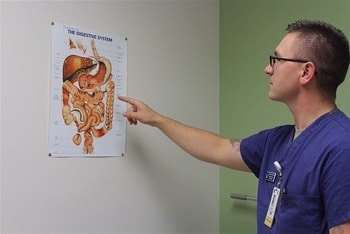
Individuals that may have GI disorders can suffer from warnings signs that are both painless and pain-induced. Such symptoms can be diarrhea/constipation (in some cases, irritable bowel syndrome). Such signs, whether they’re painful or not, could possibly be a sign of a condition other then IBS known as “centrally mediated abdominal pain syndrome” (or “CAPS” for short) which used to be medically referred to as “functional abdominal pain syndrome” (FAPS).
CAPS is a gastrointestinal disorder and is typically caused by a change in the nerve impulse sensitivity and will cause intense and frequent pain in the abdominal section which for some individuals will be quite severe.
In some cases, pain can be so intense and persistent that it’ll affect you in the similar way as the pain from a tooth ache as it can consume your focus/life since it has a tendency to “not go away” for extended periods of time. If such warning signs are present, seek counsel from a gastroenterologist where an antidepressant may be prescribed to not only reduce anxiety caused by the pain but to help alleviate the pain all together.
If you’re experiencing the feelings of belching, bloating or flatulence (build-up of gas in the alimentary canal), these could be warning signs that you you could possibly be suffering from a number of different conditions including allergies to certain foods, lactase deficiency, peptic ulcer disease or a H. Pylori Infection. Each of these we’ll cover below more in-depth so you can determine the possible cause(s) of your symptom(s).
Food Allergies – While not typical, the most severe allergic reaction that one can inherit from the ingestion of food is known as “anaphylaxis” which could possibly be life-threatening. Studies have shown that 90% of all allergies related to foods are caused from the ingestion of soy, wheat, shellfish, tree nuts, fish, peanuts, milk and eggs. If pain tends to arise after consuming such food items then this may be a signal that you need to seek the treatment of a gastroenterologist.
Lactase Deficiency – While lactase deficiency is pretty common with an estimated 3 million cases per year alone within the US, it’s an issue that’s brought upon individuals whose body has difficulty with digesting the sugar contents within dairy products. These issues arise in the digestive tract and can be treated by a GI doctor thru the use of recommended off-the-shelf medication(s) or by a prescribed medication (depending on the severity of your condition.

Individuals suffering from “Lactase Deficiency” can expect such warning signs to arise within 30 minutes to 2 hours from the consumption of milk or other food items containing dairy.
While symptoms aren’t always noticeable there are some warning signs that if arise should prompt you to see a gastroenterologist.
If you experience persistent and severe abdominal pain, have difficulty with swallowing or have bloody/black vomit that has the appearance of coffee grounds then seek diagnosis from a GI doctor for treatment as these are all warning signs that need attention before complications arise.
If you experience a yellowing of the eyes/skin then it’s very well possible that this is the warning sign that Jaundice is occurring. Jaundice is a condition in which there’s an excessive amount of bilirubin in the blood which is known, medically, as hyperbilirubinemia.
Bilirubin is a “yellow pigment” substance that affects the color pigmentation in the white of your eyes and your skin tone.
If you’re experiencing such signs of this condition schedule an appointment to see a GI doctor as quickly as possible as if not, further complications could develop which could lead to:
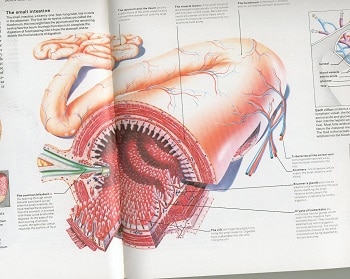
One warning signing of a possibly serious complication that should be diagnosed immediately is pain experienced in the abdominal section with the occurring pain spreading/radiating to your back. Such a feeling is a strong indicator and warning sign of “gallstone pancreatitis ”.
Gallstones are a pretty common cause of pancreatitis and this is caused by gallstones that develop in the gallbladder to block the bile duct which puts a stop to the pancreatic enzymes from being able to travel to your small intestine (which forces them to return to the pancreas).
During this process, these pancreatic enzymes will agitate the pancreas cells which will cause inflammation which can cause a great deal of pain that will radiate from the abdomen to the back. In some cases, this feeling of pain will also be accompanied by a tingling, prickly sensation. If such warning signs arise, seek attention from a physician or preferably a gastroenterologist who will help to diagnose the issue so proper treatment can be prepared/prescribed.
In the event that the gastroenterologist determines that your pancreatitis us due to the gallstones then an ECRP (Endoscopic Retrograde Cholangiopancreatography) will be performed which is a procedure conducted by the GI doctor to remove the stones.
For heavier/obese women it’s important to take cautious note of any pain that stems from the upper right-hand side of the abdominal sections as such a pain could be the indicator of “gallstone pancreatitis” (a prominent condition for heavier-set women). What’s causing such pain is the process of the gallstones blocking the bile duct which causes a chain reaction as this will stop any/all pancreatic enzymes from traveling to the small intestine providing the enzymes with no choice but to return to the pancreas. If the gallstones travel from the gallbladder to the common bile duct, gallstone pancreatitis can develop which is a condition that can continue to worsen and mature in pain while also leading to further complications if not treated.
If you’re medically considered to be “obese” and have had such pain on a regular or consistent basis, consult a GI doctor as treatment in the form of medication and surgeries are available (depending on the severity of the condition). Only making 1-2 bowel movements per week? Difficulty with going? Pain during defecating?
There are a few signs to look out for and notate when looking for signs of possible gastrointestinal complications. A few of these signs include difficulties with making bowel movements, only making 1-2 bowel movements per week or if you experience pain during defecating. Constipation is considered to be present whenever an individual is making only 1-2 bowel movements per week so if this persists this alone could be a warning sign of “anal fissure”. With an estimated 200,000 cases per year within the US alone, anal fissure is a condition that refers to the tearing in the lining of the anus which can cause an immense amount of pain during all three scenarios we referred above (making bowel movements and pain during throwing-up).
Anal fissures develop throughout the specialized tissues that line both the anus and anal canal and this is called the “anoderm”. The reason this can be (and more than likely “will be”) so painful is because of the over-abundance of nerves located within the anal canal. Diagnosis and treatment from a gastroenterologist is recommended. Typically, diagnosis of this condition can be determined by the physical inspection of area with either medication or surgery being recommended to treat (depending on the severity of the anal fissure).
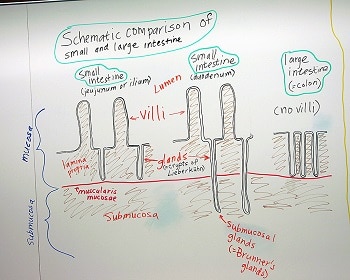
If you’re experiencing symptoms of a condition that includes intense and regular fevers, nausea/vomiting and diarrhea then notate these warning signs to show a gastroenterologist as these are signs of a possibly serious condition known as “bacterial gastroenteritis” which will need to be treated to prevent complications that could arise.
Bacterial gastroenteritis is a condition that develops and occurs whenever bacteria infiltrates your gut can and initiates an infection. If this occurs, inflammation will develop both in your stomach and intestines which will cause discomfort to say the least. Typical symptoms of “bacterial gastroenteritis” includes severe, extreme and persistent cramps in the abdominal area in addition to diarrhea/
While viruses are responsible for the majority of gastrointestinal infections bacterial infections are nearly just as common. A majority of people refer to bacteria-initiated infections as “food poisoning”.
There are a few different causes of “bacterial gastroenteritis” which can be poor hygiene habits, coming in close contact with pets or animals or from consuming foods/fluids that are contaminated with bacteria (even air-borne bacteria). If such warning signs arise, seek medical attention from a physician or preferably a gastroenterologist so the issue(s) can be properly treated to above any further development of bacterial growth.
First and foremost, any sign(s) of rectal bleeding is “not normal” and should never, in any scenario, be dismissed as a minor or non-severe matter as it’s a serious occurrence that requires the attention and treatment from a gastroenterologist.
One of the most prominent signs and symptoms of “irritable bowel syndrome” (IBS) is rectal bleeding and the presence of blood in the stool. In some circumstances, a warning sign is not making a bowel movement at all or only 1-2 times per week.
Blood expressed from the body caused IBD will appear to be “bright red” while if blood is originating from the upper area of the digestive tract the blood will be darker (dark/black stools). If such a sign has arisen be sure that you notate the darkness of the blood so you can provide this detail to a gastroenterologist who will use this information as a part of the diagnosis and treatment(s). In any case, if bleeding from the rectum is “severe” or if you’re throwing-up blood than this is a sign of a severe condition occurring which needs medical attention “immediately”.
Furthermore, such signs could also be a warning sign that you’re suffering from either “Crohn’s disease” or “ulcerative colitis” which are also conditions that you’ll want to have inspected by a GI doctor. Chron’s disease is a condition affecting 200,000 individuals per year and is a chronic, inflammatory irritable bowel disease that runs alone the digestive tract lining.
Ulcerative colitis is another chronic disease that inflames the bowel area which results in the digestive tract becoming inflamed. If any of the warning signs above are occurring, seek medical attention. You don’t want to take the chance of such conditions maturing in growth/size as not only could further complications arise but you may have to undergo additional treatments which otherwise could’ve been avoided had you have the condition(s) treated early on.
Experience vague or minor abdominal pain with a change in bowel movements last for 3+ months? Any changes in your normal bowel movement habits that are lasting for 3+ months is a sign that your body is changing, or, is changing due to an irregular occurrence/condition that should be looked at by a GI doctor; especially when you’re experiencing changes in bowel movement that are lasting for an extended period of time.
Irritable Bowel Syndrome (IBS) is a condition that can spark a significant amount of pain to its victims and will initiate a discomforting agitation feeling in the abdominal area. There are some very common symptoms of having IBS which include constipation, gas and diarrhea (in addition to a pain-induced belly). Having your IBS diagnosed for the severity will help you to have a planned pain-management regiment that will be created for you by the gastroenterologist.
When your stomach is experiencing pain it’s caused from the constipation or the diarrhea although is the painful feeling(s) diminish upon making a bowel movements then more than likely, your symptom(s) are an indicator of your pain being tied to a condition other than IBS (consult a GI doctor for diagnosis). This pain is initiated by contractions which can and will cause intolerable pain that will consume your life, make it difficult to rest and will make it difficult to focus on aspects of life (work for example).
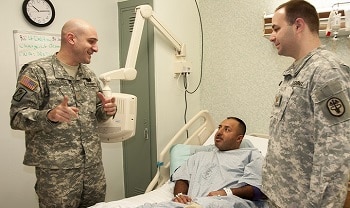
When it comes to your health it’s never a smart idea to over-look symptoms of possible health-related complications and rectal pain, bleeding from the rectum or the presence of blood in your stool are warning signs of a possibly serious complication. If you’re experiencing any of these signs, there’s a possibility that you body is suffering from one or more conditions that include it hemorrhoids, anal fissure, or anorectal cancer (although this is rare).
Hemorrhoids is a condition that should be treated by a GI doctor as Hemorrhoids is a medical condition that means the veins in the rectum and anus have become “swollen” which can cause the veins to bulge which will then result in severe agitation especially during bowel movements. Swollen hemorrhoids may be referred to by your gastroenterologist as “piles” as this is a commonly used medical term for this particular condition.
Hemorrhoids , depending on the severity of you case(if it’s determined by the GI doctor that you in-fact have it), you may undergo an operational procedure where the gastroenterologist will make use of specially designed medical equipment (not that intrusive) to “shrink” and “remove” the hemorrhoids which could actually be done on-site at the GI doctor’s office. Another treatment option is the GI doctor administering an injection in to the hemorrhoid with a specially formulated solution that will result in scarring the hemorrhoid to close it off.
Anal fissure is another condition that could be occurring if bleeding from the rectum is prevalent as this condition is the occurrence of “tearing” in the anus lining which will cause blood to originate out of the rectum which can be noticeable by looking at the stool (is blood noticeable?).
Finally, bleeding from the rectum can “possibly” be a sign of “anorectal cancer ” although this is quite uncommon and not the typical cause of bleeding from the rectal region. “Anorectal cancer” is a malignant infested disease that forms within the tissues and glands of the anus. If you’re suffering with HPV (human papillomaviurs) will increase the chances of “rectum cancer development” so it’s vitally important that you seek diagnosis is warning signs such as rectal bleeding occur.
For elderly/older women, experiencing a bulge or in the rectal area (comparable to a stomach bulge) is a serious sign of either “rectal prolapse” or “vaginal prolapse”; serious yet treatable conditions that can be cured by a gastroenterologist thru the practice of medication(s) or procedural operations.
In the United States it’s estimated that 10% of all elderly women suffer from rectal prolapse with signs ranging from rectal bleeding to the feeling of a “bulge” in the rectal region (noticeable to the touch). Rectal prolapse, specifically, is a condition in which the parts of the large intestine will protrude out of the anus and will cause quite a bit of discomfort, pain, difficulty with making a bowel movement and rectal bleeding.
If such signs occer, don’t procrasitance on receiving treatment. Consult with a GI doctors so treatment preparation(s) can be facilitated.
Vaginal prolapse is another condition that rectal bleeding can be a warning sign of. Vaginal prolapse is a serious condition where the bladder, rectum, urethra, small bowel or uterus will begin to fall out place.
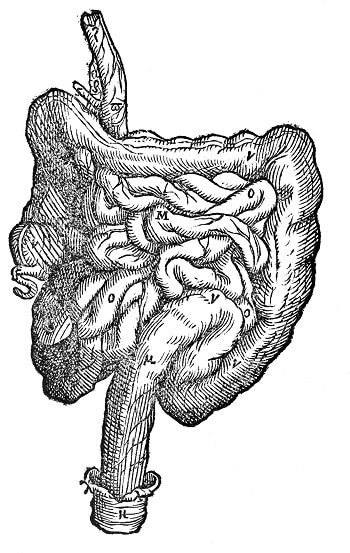
If any of these warning signs occur, it’s time to visit a gastroenterologist so you can receive an accurate diagnosis and treatment.
When it comes to your overall health, maintaining your normal body functions and avoiding complications a gastroenterologist can is a great go-to medical professional as you’ll be able to take advantage of the specialized training that the GI doctors has received so you can alleviate yourself of medical complications.
If any of this signs on this list has occurred, don’t hesitate to seek the intervention of a GI doctor. It’s paramount to ensuring the longevity of your health and will provide you with the peace-of-mind knowing that your symptoms are being affectively diagnosed and of course, treated.
We hope you found this guide helpful. Your gastrointestinal health is important to us and it’s our sincere mission to provide useful medical advice and suggestions.
 Kas sukelia vėmimą? 7 priežastys, kodėl ir kaip tai palengvinti
Kas sukelia vėmimą? 7 priežastys, kodėl ir kaip tai palengvinti
 Kokie yra dispepsijos simptomai?
Kokie yra dispepsijos simptomai?
 Kokie maisto produktai sukelia opinį kolitą?
Kokie maisto produktai sukelia opinį kolitą?
 Dekadentiniai uogų obuolių kiaulienos kotletai, už kuriuos reikia mirti (šiam valgiui nelieka)
Dekadentiniai uogų obuolių kiaulienos kotletai, už kuriuos reikia mirti (šiam valgiui nelieka)
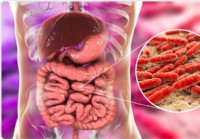 Pusė vartojamų vaistų pažeidžia žarnyno bakterijas,
Pusė vartojamų vaistų pažeidžia žarnyno bakterijas,
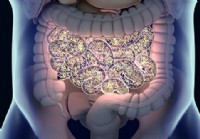 SIBO (per didelis plonųjų žarnų bakterijų augimas) priežastys, simptomai, gydymas ir dieta
SIBO (per didelis plonųjų žarnų bakterijų augimas) priežastys, simptomai, gydymas ir dieta
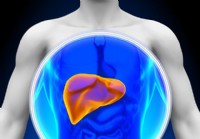 Paveldima hemochromatozė (geležies perteklius)
Kas yra paveldima hemochromatozė? Geležies kaupimasis kepenyse sukelia kepenų randus (cirozę) ir padidina kepenų vėžio išsivystymo riziką. Paveldima hemochromatozė yra paveldima (genetinė) liga
Paveldima hemochromatozė (geležies perteklius)
Kas yra paveldima hemochromatozė? Geležies kaupimasis kepenyse sukelia kepenų randus (cirozę) ir padidina kepenų vėžio išsivystymo riziką. Paveldima hemochromatozė yra paveldima (genetinė) liga
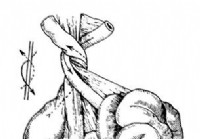 Aklosios žarnos sukimas – ūminio pilvo diagnozė
Be torsionų, šiame žarnyno tako skyriuje pastebimos ir kitos nepraeinamumo formos, atsirandančios dėl įvairių aklųjų ir kylančių žarnų pertekliaus, kurie derinami su sukimais, ekscesais, kitos klubinė
Aklosios žarnos sukimas – ūminio pilvo diagnozė
Be torsionų, šiame žarnyno tako skyriuje pastebimos ir kitos nepraeinamumo formos, atsirandančios dėl įvairių aklųjų ir kylančių žarnų pertekliaus, kurie derinami su sukimais, ekscesais, kitos klubinė
 4 proto spąstai, dėl kurių mes apgaudinėjame dietą (ir kaip jas įveikti)
Dar kartą pažiūrėjau į šaldytuvą – liko 3 keksiukai. Mano kūnas buvo pripildytas nerimo; Jaučiausi kaip bejėgė priešintis, 5 mėnesius vartojau SCD ir nenorėjau apgaudinėti... vėl. Kai vaikščiojau po
4 proto spąstai, dėl kurių mes apgaudinėjame dietą (ir kaip jas įveikti)
Dar kartą pažiūrėjau į šaldytuvą – liko 3 keksiukai. Mano kūnas buvo pripildytas nerimo; Jaučiausi kaip bejėgė priešintis, 5 mėnesius vartojau SCD ir nenorėjau apgaudinėti... vėl. Kai vaikščiojau po